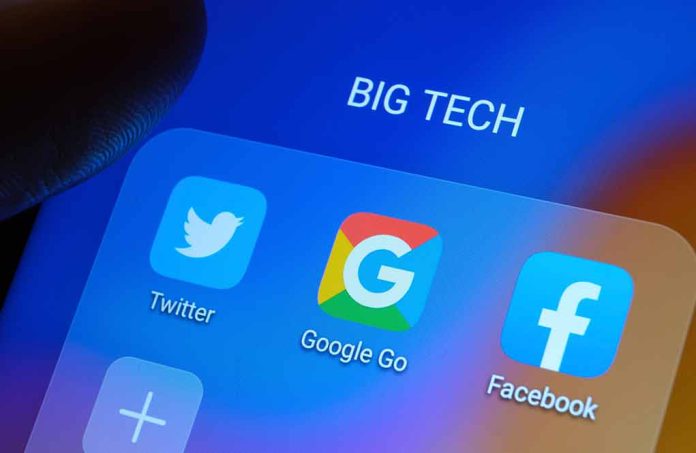
By appointing Gail Slater to the Department of Justice, President Trump underscores his commitment to challenging Big Tech practices and advocating for comprehensive reform.
At a Glance
- The DOJ proposes breaking up Google’s search monopoly as a major antitrust measure.
- Trump announces Gail Slater as nominee for Assistant Attorney General for the Antitrust Division.
- Slater’s role involves handling significant antitrust cases against major tech firms.
- Google opposes the DOJ initiative, labeling it a “radical interventionist agenda.”
- Bipartisan support exists for antitrust actions against Big Tech, with ongoing international scrutiny.
DOJ’s Landmark Move Against Google
The U.S. Department of Justice has filed a proposed final judgment to dismantle Google’s search monopoly in a significant antitrust initiative. This plan requires Google to sell its Chrome browser and includes possible divestment of Android if competitive measures do not materialize. Google’s opposition remains strong, with their chief legal officer, Kent Walker, describing the move as a “radical interventionist agenda.” The outcome of this antitrust push could shape the technology landscape profoundly.
The implications of this DOJ initiative may extend beyond Google’s interests. Trump’s administration could target other tech giants like Amazon, Meta, Microsoft, and Apple as part of their broader scrutiny of Big Tech. This marks a potential shift in how the digital market is structured and regulated by the government, raising numerous stakeholder comments both domestically and internationally.
Gail Slater: A Key Appointment
President Trump has announced Gail Slater’s nomination as the Assistant Attorney General for the DOJ’s Antitrust Division. Slater’s extensive experience includes roles with the Federal Trade Commission and as an advisor to Vice President-elect J.D. Vance. If confirmed, Slater will spearhead antitrust cases against major tech companies, continuing efforts initiated by the DOJ to balance corporate power with consumer rights and competition.
“Big Tech has run wild for years, stifling competition in our most innovative sector,” Trump said in a social media post.
Slater’s role aligns with Trump’s stated goal of enforcing market fairness while encouraging innovation. Amidst bipartisan support, even within high ranks of the tech industry, this move speaks volumes about the White House’s determination to enhance consumer choice, address national security concerns, and uphold market fairness.
Big Tech’s Uncertain Future
The decision to ramp up antitrust measures against Big Tech resonates beyond U.S. borders, with European regulators intensifying their supervision of the tech landscape as well. Proposals include potential divestment strategies similar to those affecting Google’s ad tech business. The repercussions of these actions could catalyze significant shifts in market dynamics, affecting innovation, employment, and equity markets worldwide.
The speculation around how these antitrust efforts will unfold remains, but several political and industry leaders view this as a pivotal moment. Enhanced regulations could mean a more competitive tech environment, but the transition may challenge innovation and market cohesion in the short term. Moving forward, the focus continues to be on balancing authoritative intervention with technological progression and market freedom.








